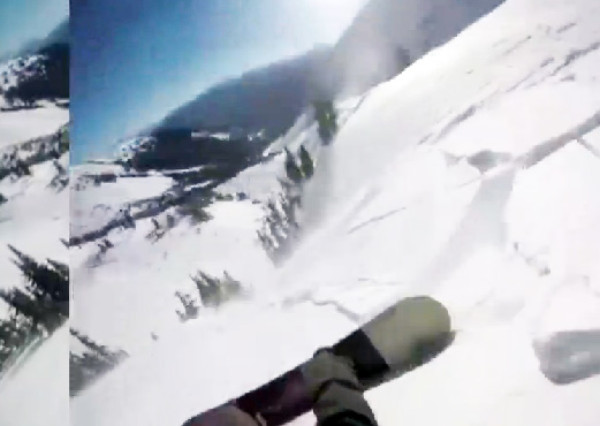January 12 - Yuliya Talmazan - Global News
A snowboarder in Whistler has his airbag backpack to thank for saving his life.
Tom Oye, who hails from Adelaide Australia, posted a video of himself getting swallowed by an avalanche in Whistler less than 24 hours ago.
In the video, Oye can be seen snowboarding on a sunny day when the snowpack suddenly gives away from under his feet.
Fortunately, Oye managed to activate his airbag pack just seconds before he got swept up by the avalanche.
The pack helped Oye stay on the surface and potentially saved his life.
The video has now been viewed more than 2.7 million times and has nearly 24,000 shares.
Mark Grist with Avalanche Canada says while airbag packs can be an important tool for skiers and skateboarders to have, they are not a silver bullet.
“It is not the be-all and end-all,” Grist said. “It’s another recommended tool to have in your personal safety arsenal.”
Grist says the primary avalanche safety tools are still a transceiver, shovel and probe.
“If you would like to add an airbag to that arsenal, so much the better,” he said. “But it’s not a substitute for good planning and informed decision making.”
Mike Danks with North Shore Rescue says Oye was incredibly lucky to walk out alive.
“It shows things like that can happen,” Danks said. “He was not expecting it to happen, but he did the right thing. He stayed calm, he inflated his pack and he stayed on the top of the avalanche.”
Danks says it also shows the importance of having the right equipment with you, and that even though inflatable backpacks can save lives, they are not always the answer.
Above all, Danks is encouraging people to take avalanche safety courses, “so they understand the terrain they are getting into and the snowpack that they are going to be on.”
The current avalanche risk on the South Coast is “moderate” in the alpine and tree line.
Avalanche Canada says South Coast mountains received 15 to 20 centimeters of snow on Sunday and Monday. The southwest flow of the storm, followed by strong northeast winds over Tuesday, resulted in pockets of wind slabs being formed.
Grist says the wind slabs are the chunks of snow that can be seen cracking under Oye’s feet in the video. They are formed when the wind picks up loose snow and deposits it on the slopes, packing it together.
He says the slabs on steep southerly slopes are especially touchy. “Where this avalanche happened was a steep southerly slope, so it’s exactly what we would expect right now under these conditions,” Grist said.
Grist says the Arctic outflows we have been seeing this winter have resulted in strong winds at higher elevations, which contributes to the creation of wind slabs seen in Oye’s video.
“That’s a pattern we are not terribly used to seeing here on the South Coast,” he said.

